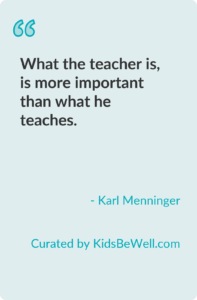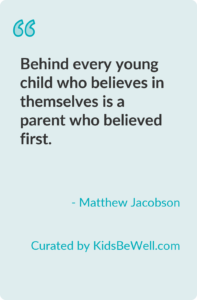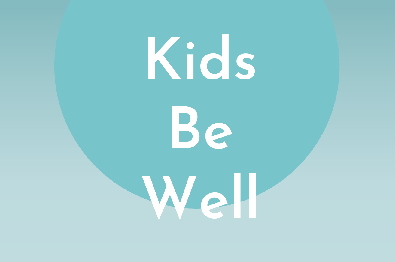The quote, "A person who never made a mistake never tried anything new," by Albert Einstein, holds valuable wisdom for parents raising children in a fast-paced and ever-changing world. Mistakes, often seen as setbacks, are essential stepping stones for growth and learning. For children, making mistakes is an inevitable part of trying, exploring, and discovering new possibilities.
As parents, it’s crucial to shift the narrative around mistakes from being failures to opportunities. Let’s delve into how this principle can guide parenting approaches that foster courage, curiosity, and resilience in children.
Mistakes Are Opportunities to Learn
Mistakes are not failures—they are lessons. When children try something new, whether it’s learning to ride a bike or solving a complex math problem, they are bound to stumble along the way. These stumbles teach valuable lessons about perseverance, problem-solving, and adaptability.
Instead of focusing on the mistake itself, emphasize the learning experience. For instance, if your child forgets their lines in a school play, encourage them by acknowledging their courage to perform. Help them reflect on what they could do differently next time. This approach reinforces the idea that mistakes are part of the journey to success.
Encouraging Risk-Taking and Exploration
Trying new things requires children to step out of their comfort zones, which can be daunting. Parents play a vital role in creating a safe environment where children feel supported in taking risks. Whether it’s experimenting with a new hobby, making a new friend, or tackling a challenging subject, children need to know that it’s okay to fail.
For example, if your child shows interest in painting but fears they’re not good at it, provide them with the materials and encouragement to try. Celebrate their effort rather than perfection, and they’ll feel more confident exploring other interests.
Building a Growth Mindset
A growth mindset, as introduced by psychologist Carol Dweck, is the belief that abilities and intelligence can be developed through dedication and hard work. Teaching children this mindset helps them see mistakes as opportunities to grow rather than reasons to quit.
When your child struggles with a task, use language that fosters growth. Instead of saying, “You’re not good at this,” say, “You’re not good at this yet.” The word “yet” emphasizes potential and progress, encouraging children to keep trying despite setbacks.
Modeling Resilience as a Parent
Children often mimic their parents’ attitudes and behaviors. If you respond to your own mistakes with frustration or self-criticism, your child might adopt the same mindset. Conversely, if you approach mistakes with a calm and constructive attitude, you teach them resilience and problem-solving skills.
Share your experiences with your child when appropriate. For instance, you might say, “I once made a mistake at work, but I used it as a chance to learn and improve. Everyone makes mistakes—it’s how we grow.”
Creating a Supportive Environment for Experimentation
Children thrive in environments where they feel safe to experiment and fail. Encourage open communication and let your child know they can talk to you about their struggles without fear of judgment.
Provide constructive feedback rather than criticism. For example, if your child’s science experiment doesn’t work as planned, discuss what might have gone wrong and how they can approach it differently. This type of support fosters resilience and a willingness to try again.
Celebrating Effort Over Perfection
In a world that often rewards perfection, it’s essential to teach children the value of effort. Celebrate their determination, creativity, and willingness to try, even when the results aren’t perfect.
For example, if your child builds a lopsided tower with building blocks, praise their effort in designing and constructing it. Focus on the joy of creation rather than the imperfections. This approach helps children develop confidence in their abilities and a love for learning.
Helping Children Handle Failure Constructively
When children face significant setbacks, they might feel disheartened or embarrassed. Help them reframe these experiences as learning opportunities. Encourage them to reflect on what they can improve and reassure them that failure is a natural part of trying something new.
Teach them to focus on solutions rather than dwelling on the problem. For example, if your child struggles in a sports game, discuss strategies they could practice for next time. By focusing on improvement, you help them move forward with confidence.
The Takeaway
Albert Einstein’s quote, "A person who never made a mistake never tried anything new," reminds us of the importance of embracing mistakes as essential components of growth and discovery. As parents, we have the privilege and responsibility to guide our children in understanding that mistakes are not failures but opportunities to learn, adapt, and thrive.
By fostering a growth mindset, encouraging risk-taking, and modeling resilience, we can help children embrace life’s challenges with courage and curiosity. The next time your child hesitates to try something new, remind them that every great success starts with a willingness to make mistakes—and that they have your unwavering support every step of the way.












